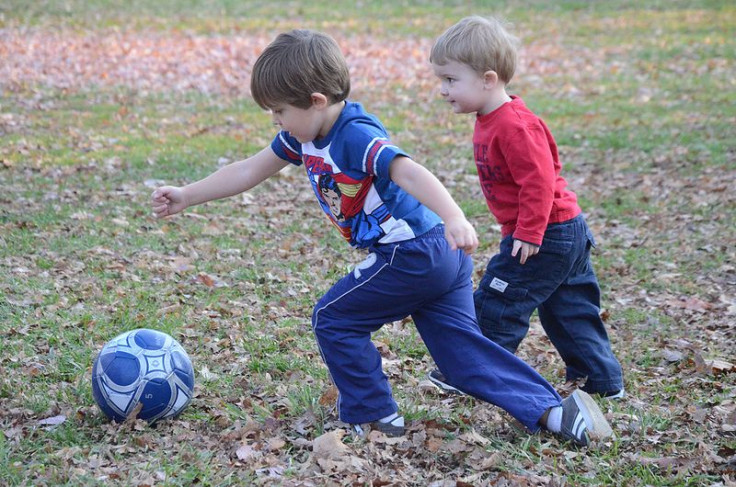Children Learn To Compete, Realize Others Have Their Own Goals At 4 Years Old

There comes a time in a child’s life when suddenly many familiar activities become a competition. Whether it’s racing to the corner of the block or trying to steal another kid’s ice cream, the competitiveness can go either way — it can be friendly at times and seemingly arrogant at others. Now, a new study looks deeper into the behavioral constructs behind competition, and it found that many children don’t understand the concept until they turn about four years old.
“Competiton isn’t inherently good or bad,” Dr. Andrew Meyers, a professor of psychology at the University of Memphis who wasn't involved in the study, told Parents Magazine. “But it can have positive and negative consequences.”
Read More: Good Sleep Linked to Improved Vocabulary in Children
Dr. David Aderegg, a child psychologist in Lenox, Massachusetts, told Parents that the most important thing a parent can do during this time is “to help their kids compete in a healthy way.”
When Children Learn About Competition
Johannes Roessler, a philosopher at the University of Warwick, and his team of researchers studied children’s perception of competition based on the idea that people sometimes act on “false beliefs.” They showed 71 children, ages 3-5, a boy placing chocolate inside a drawer. Once the boy left, another person took the chocolate and placed it inside a cupboard. The children were then asked where the boy would go to get his chocolate.
Younger children, mostly those under four years old, believed the boy would go to the cupboard because that was where the chocolate was put, even though the boy didn’t know it. Older children, however, chose the drawer because that was where the boy still believed the chocolate was.
Read More: Fathers, More than Mothers, Shape a Child's Personality
“Younger children seemed to lack a developed understanding that people’s intentional actions reflect their perspective (beliefs) on how best to accomplish their goals,” Roessler said in a statement.
“When a three-year-old wants to be the fastest kid in the world, he simply imagines that he is,” psychologist Susan Engel, director of the Program in Teaching at Williams College in Massachusetts, said to Parents. “A five-year-old realized it’s not good enough just to think he’s the fastest — now he’s got to prove it.”
This first test set the stage for the real test for competitive tendencies among the children. The children then played a game in which they had to put beads on a stand, and the first person to fill their stand with beads won. They determined the number of beads they could put on the stand during each turn by throwing a die. The twist was that they could either take their beads from a basket, marked as a neutral move, or poach them from their opponent’s stand, which was marked as a competitive move.
Read More: How Video Games Can Help Children Succeed In School
Children who poached their opponent’s beads showed that they understood that both them and their opponent had two separate goals, and that they would have to disrupt their opponent in order to win, Roessler said.
The researchers found that those children who failed the false belief test were less likely to engage in the competitive actions, even when the children they were competing against took their beads. The researchers said this was especially significant, because they had expected any kid who saw another kid taking their beads to take some back in return.
“The ‘four years of age’ rule isn’t hard and fast. What’s important is not the absolute age of a child, but the fact that those who do not understand how intentional action can be informed by false beliefs also tend to struggle with the idea of competition,” Roessler said.
Source: Roessler J, Perner J, Priewasser B. Competition as rational action: Why young children cannot appreciate competitive games. Journal of Experimental Child Psychology. 2013.
Published by Medicaldaily.com



























